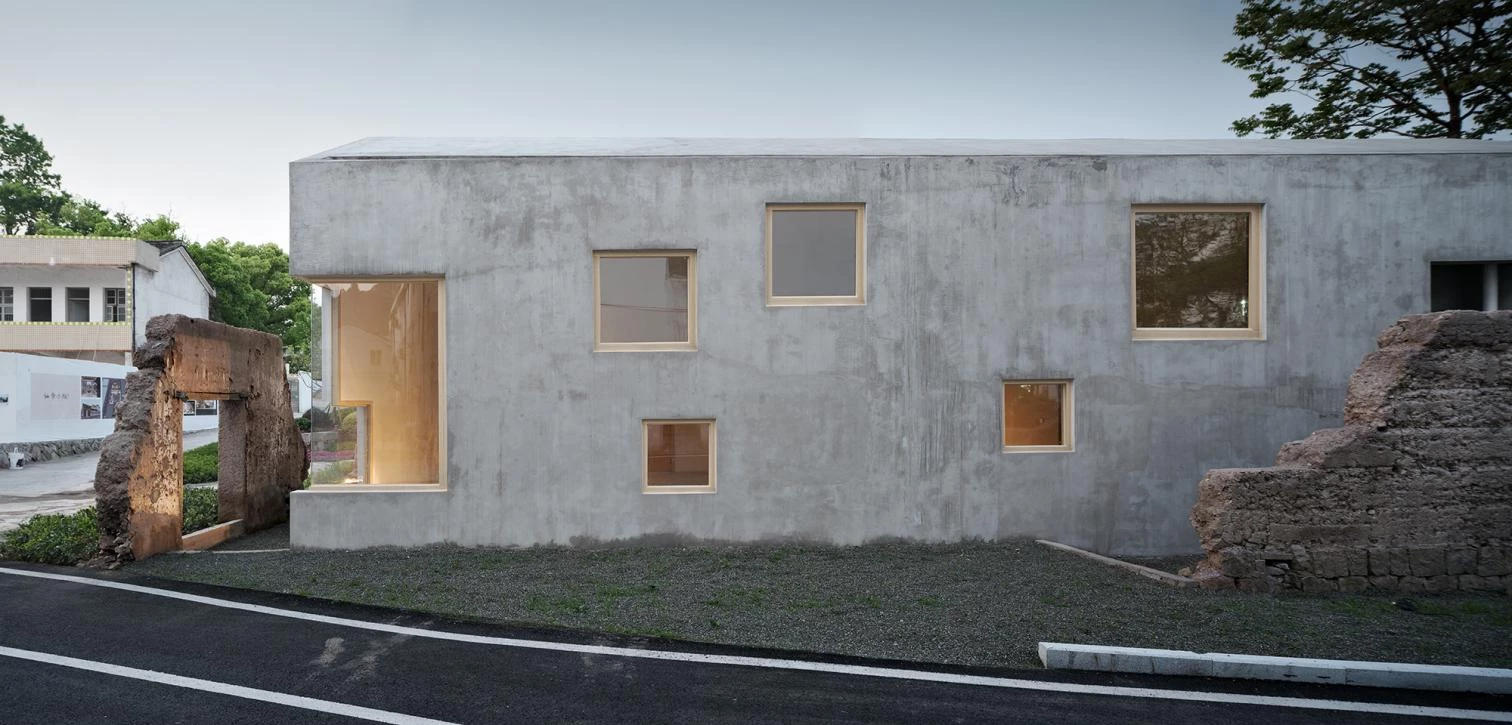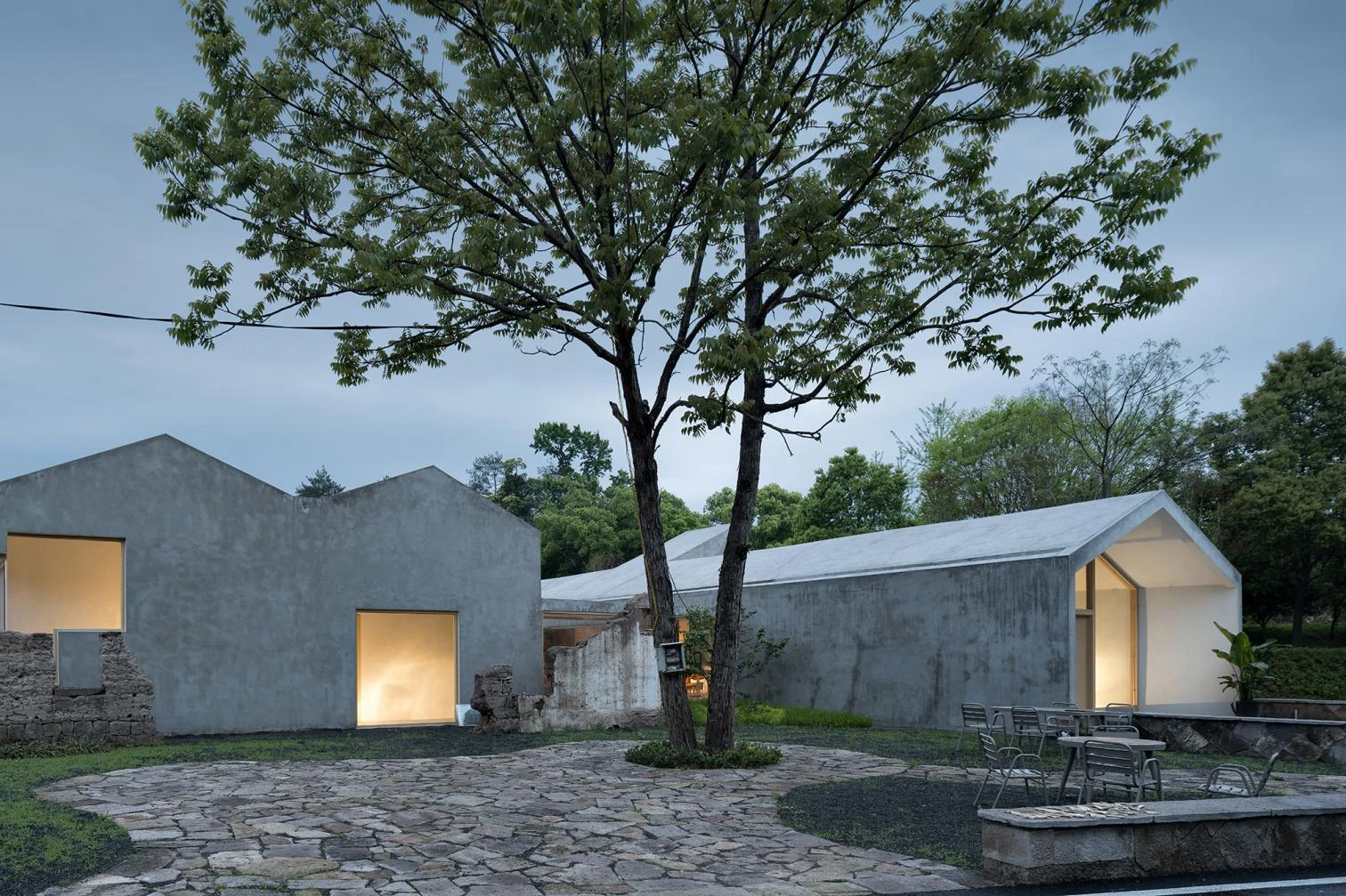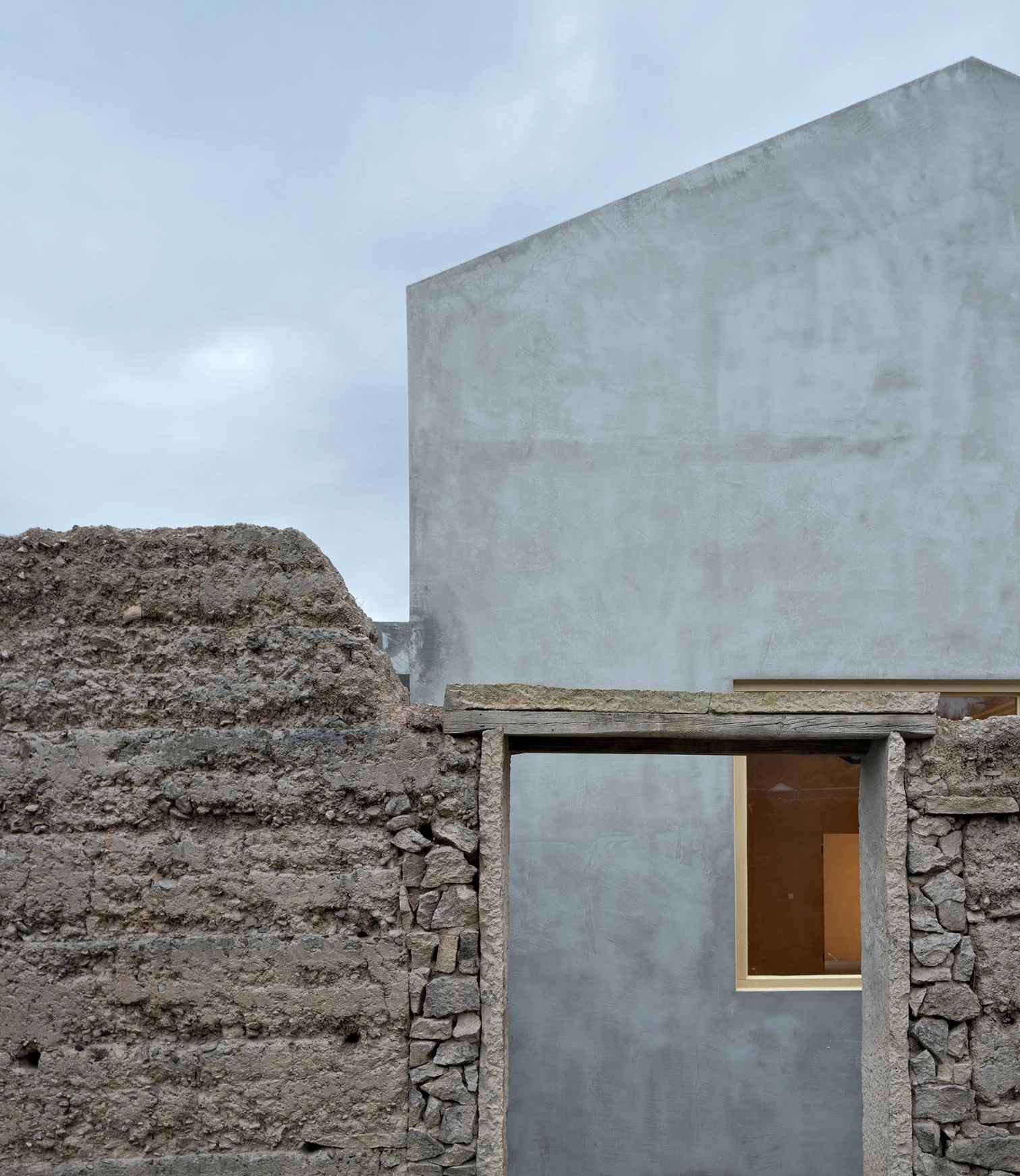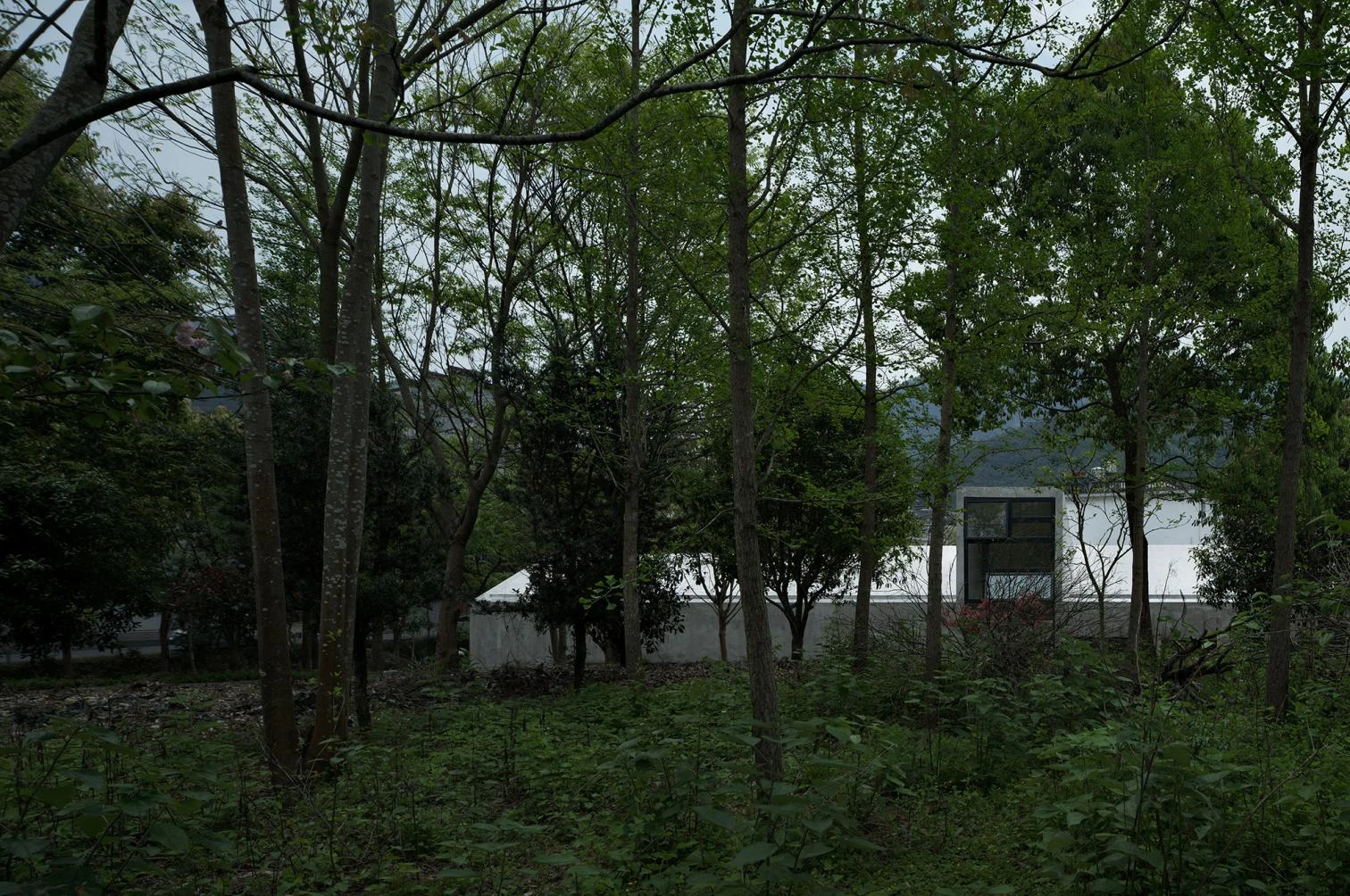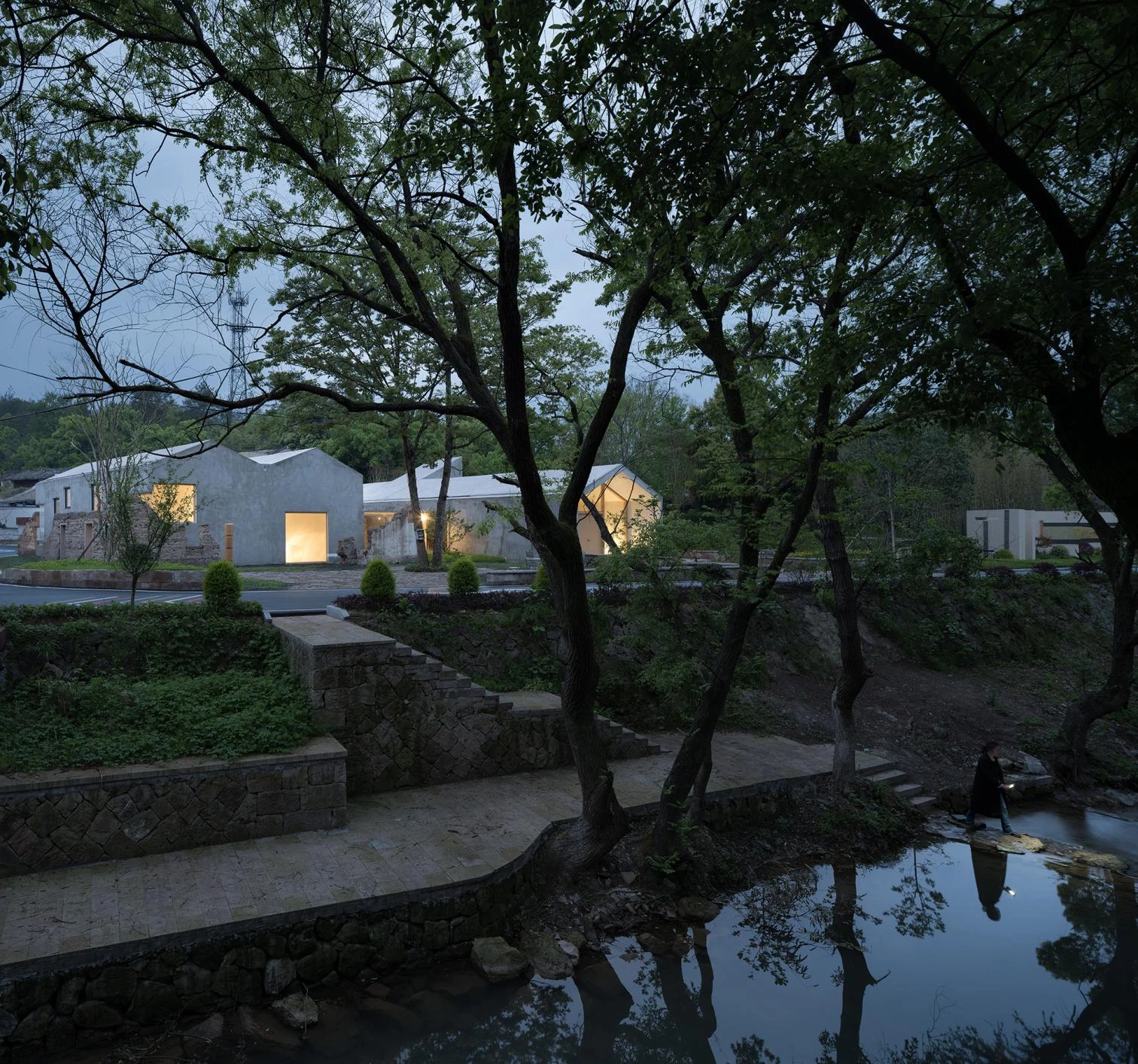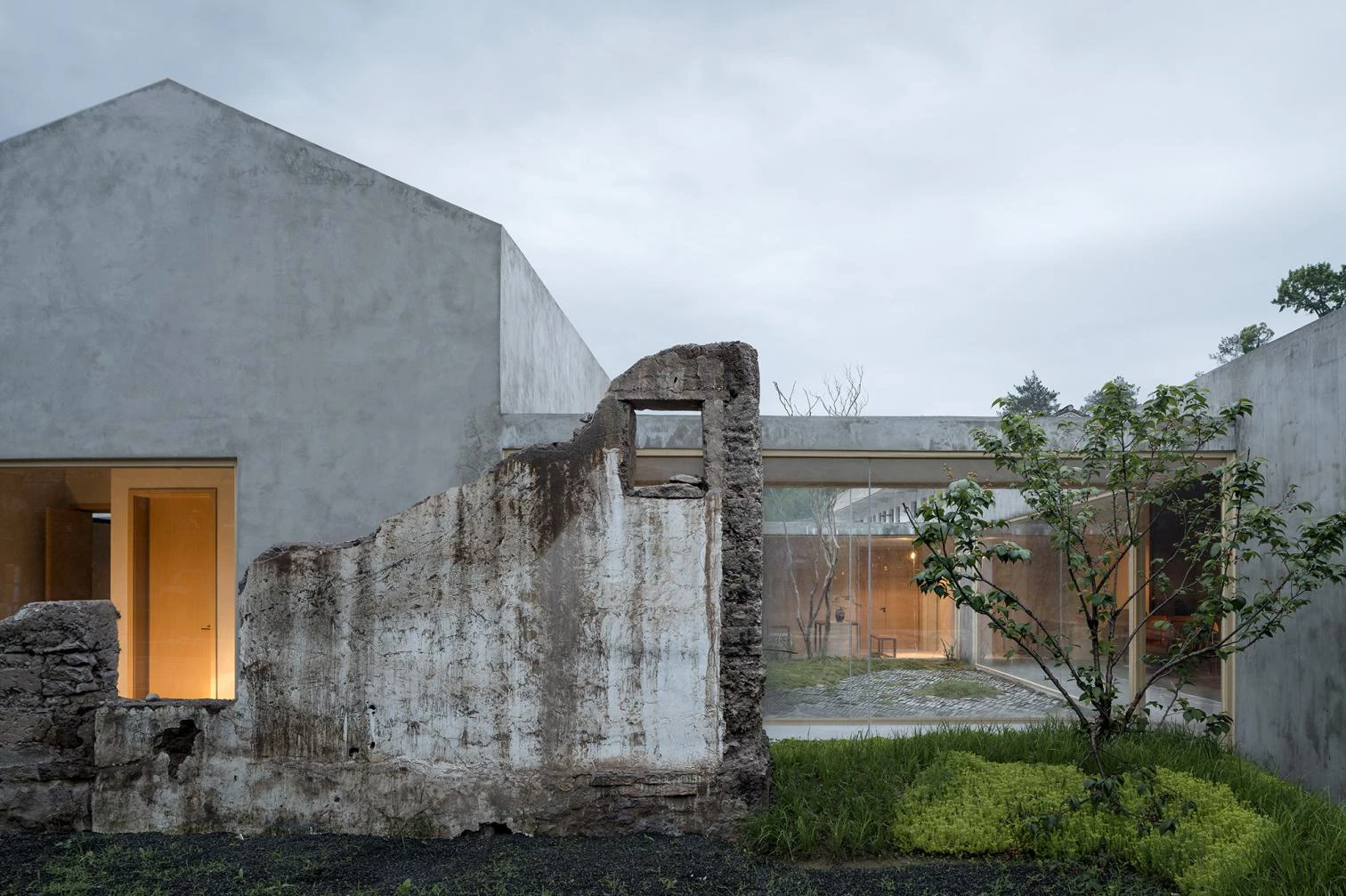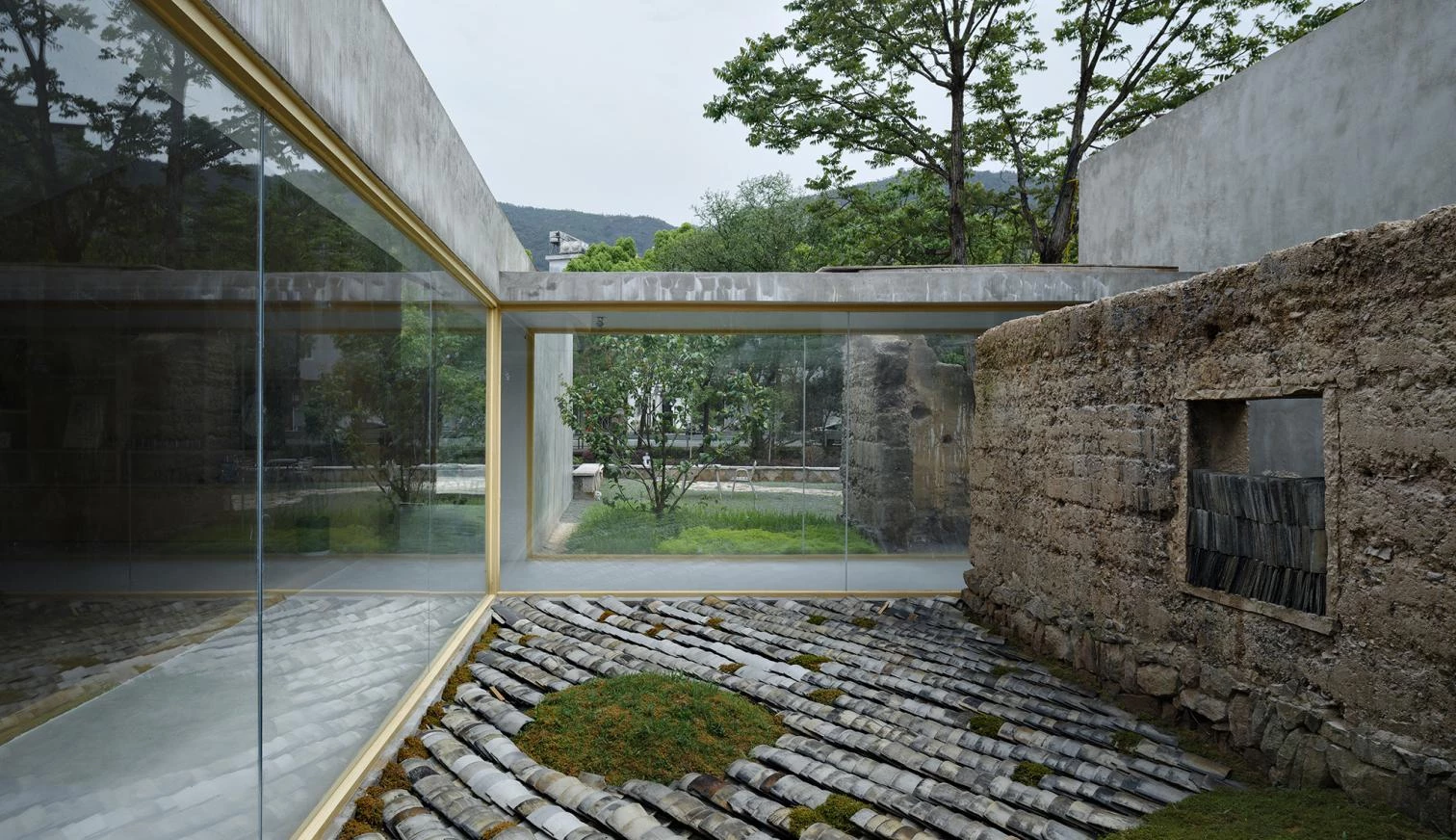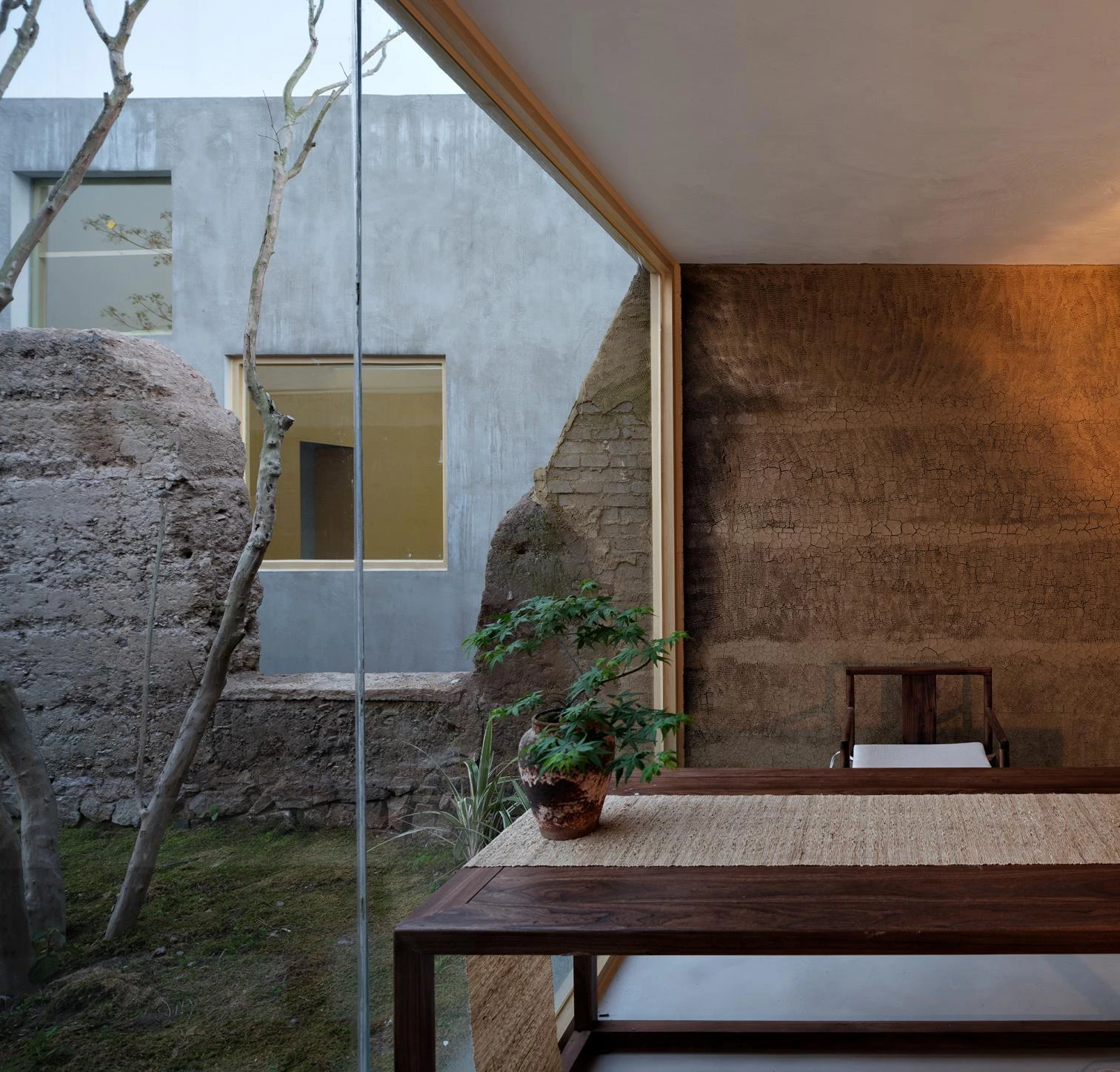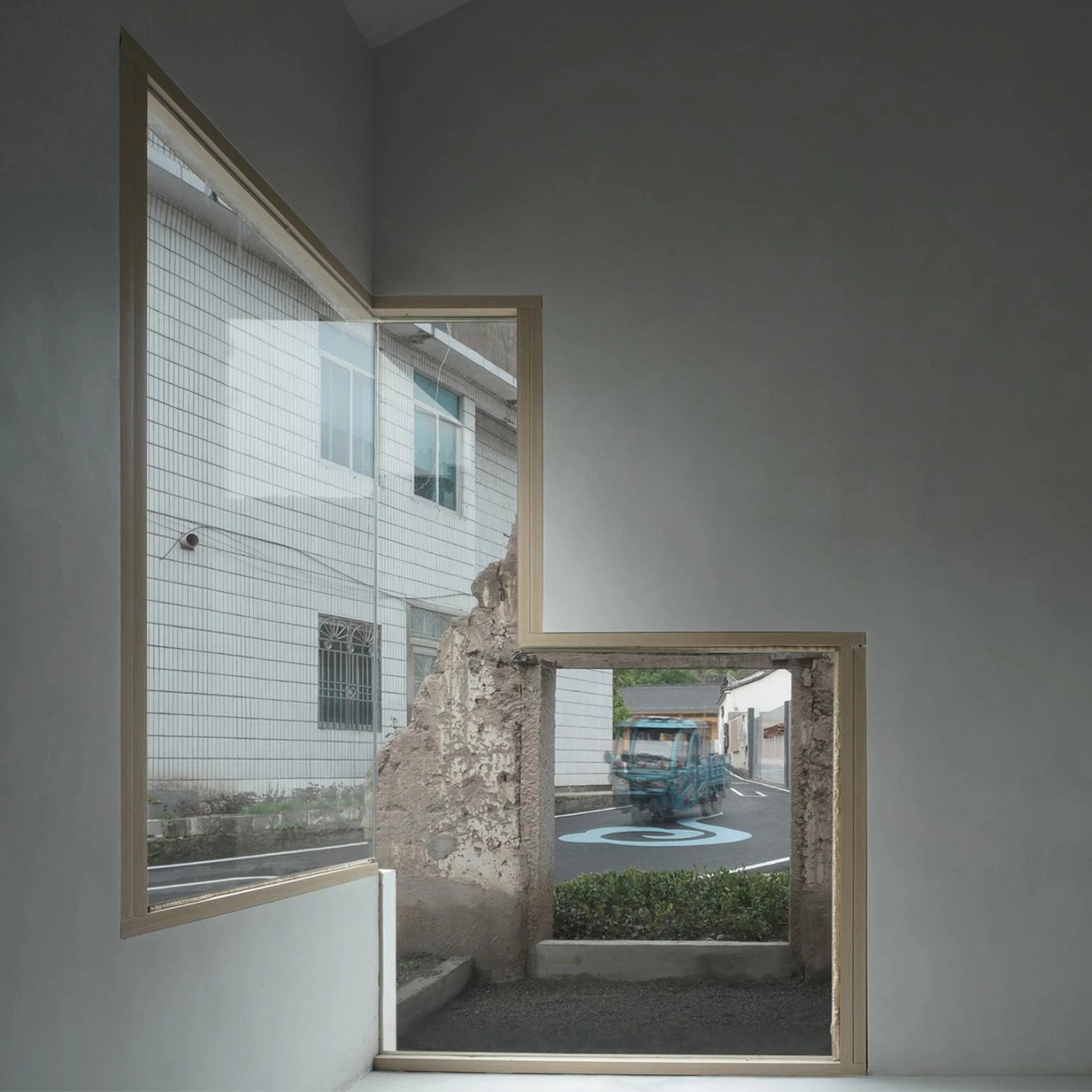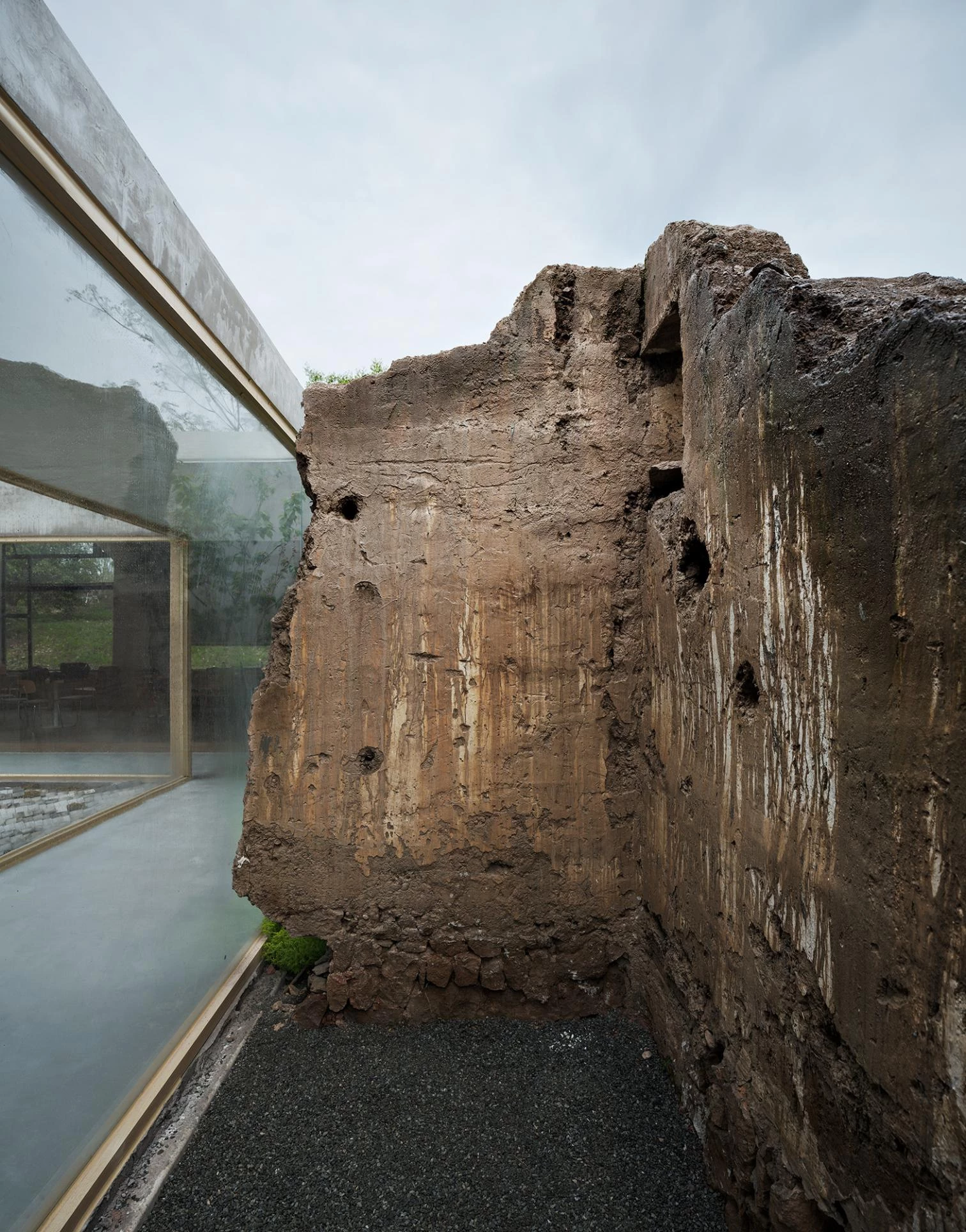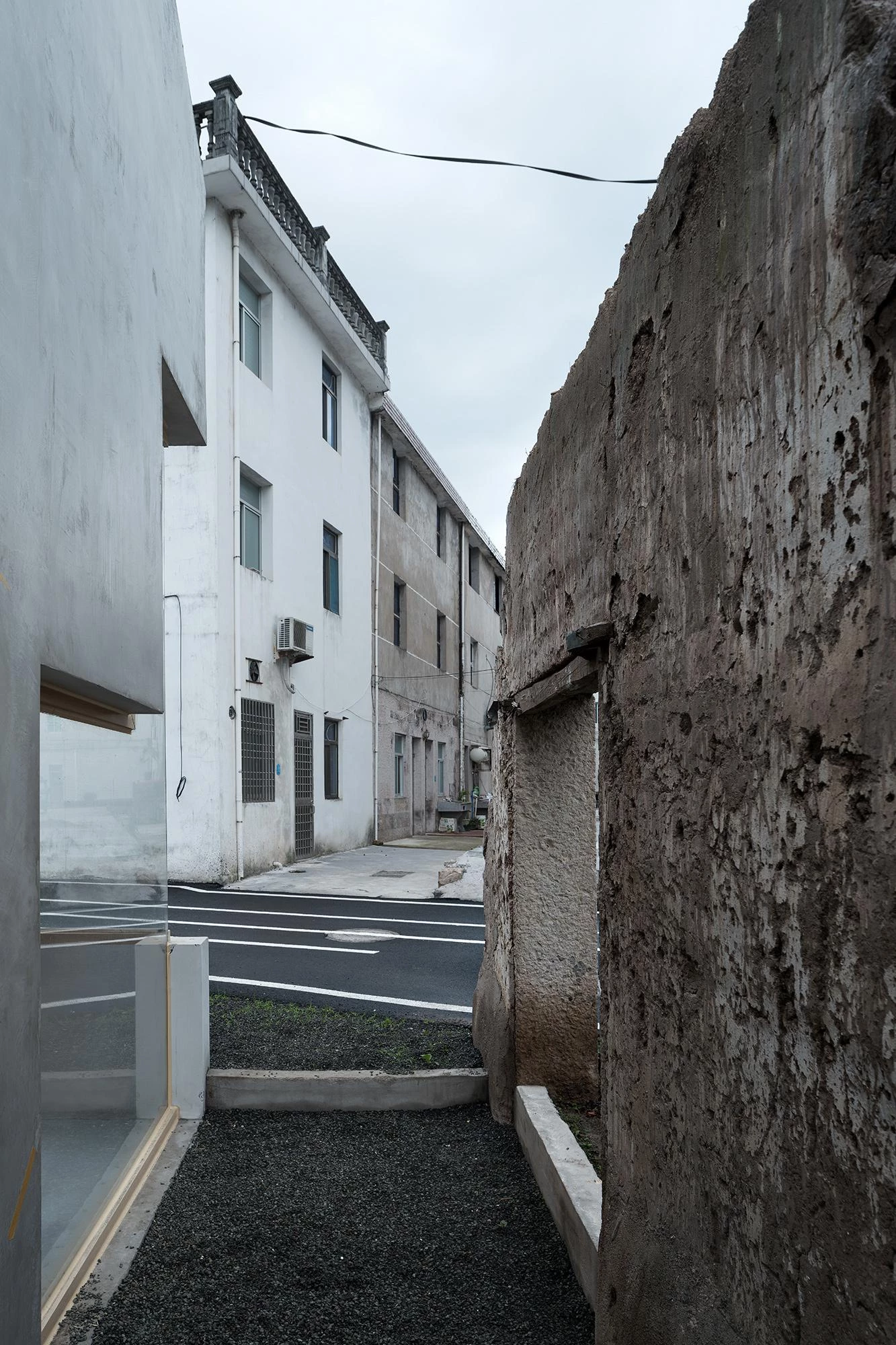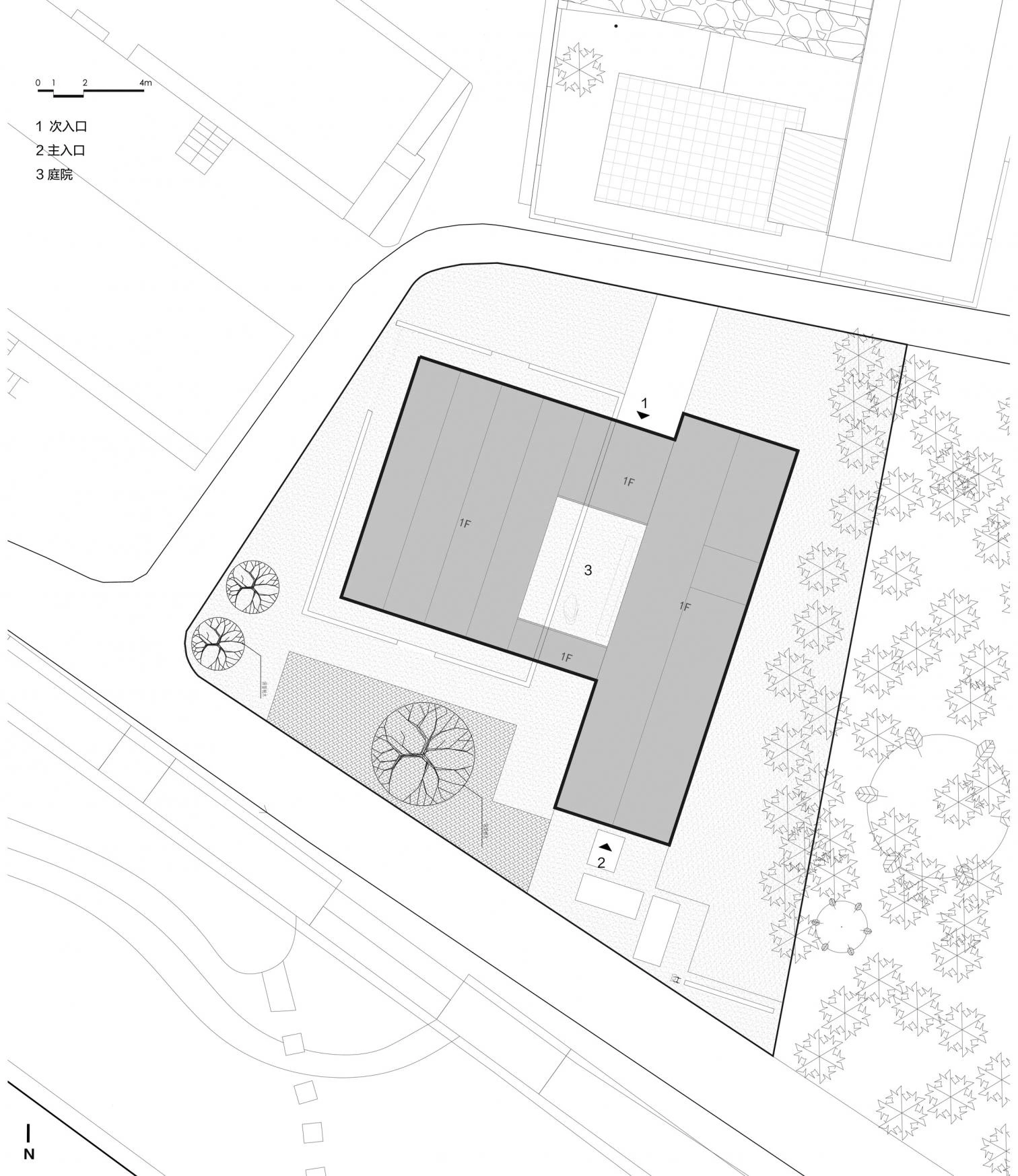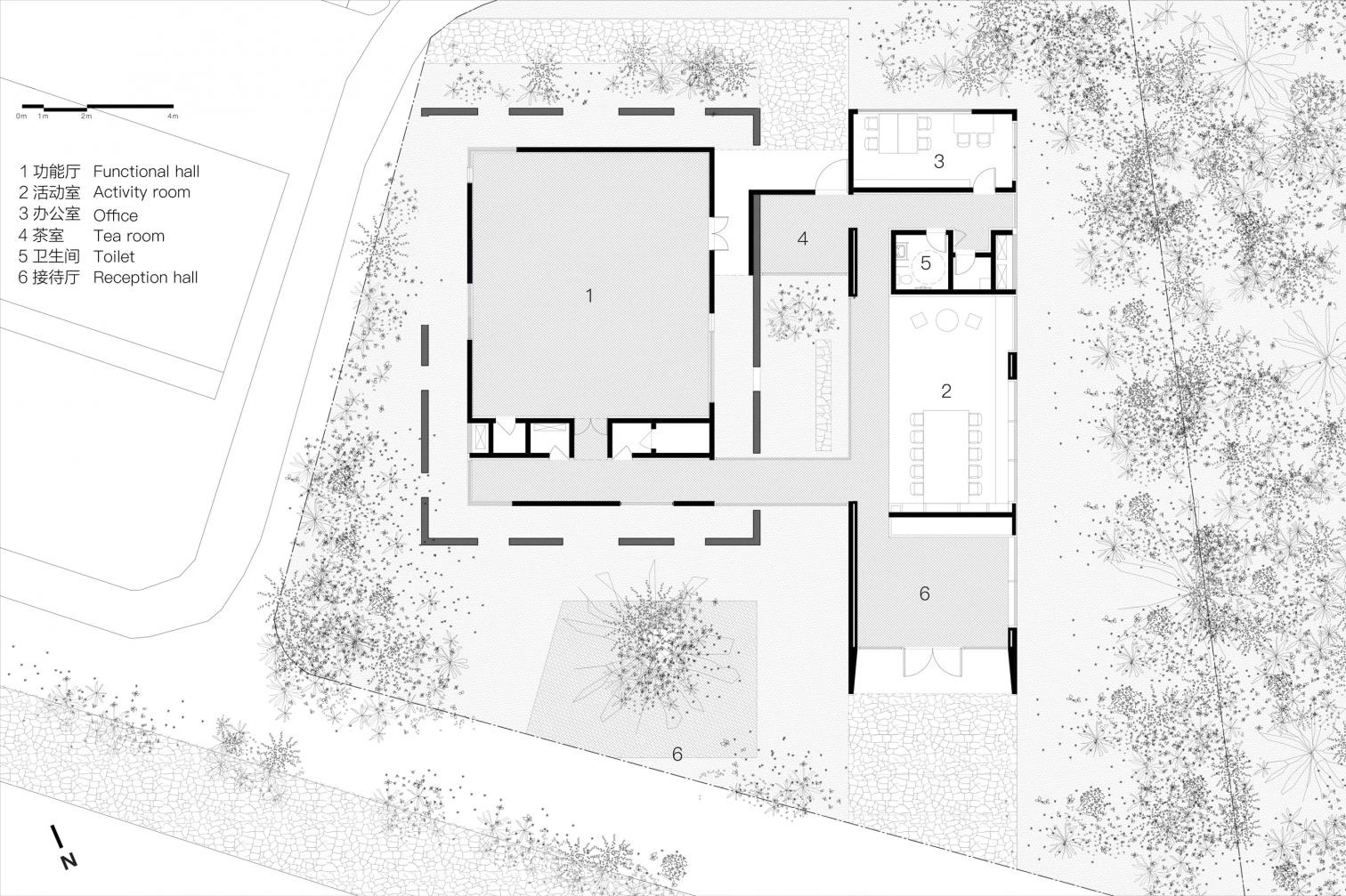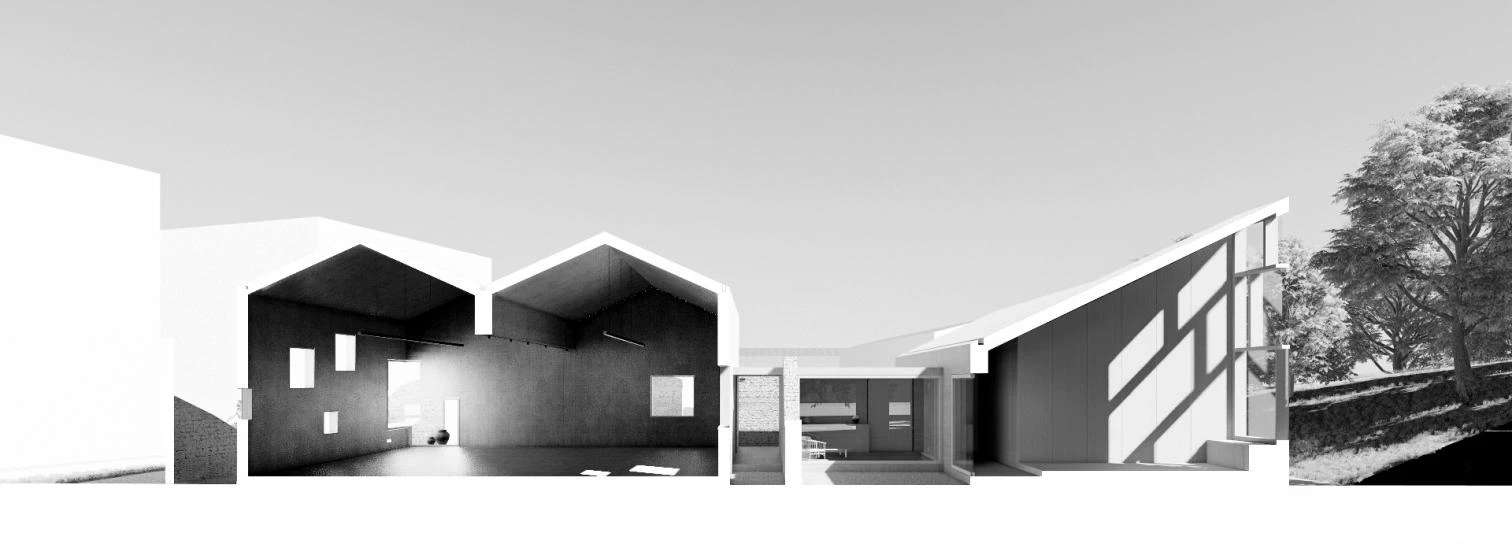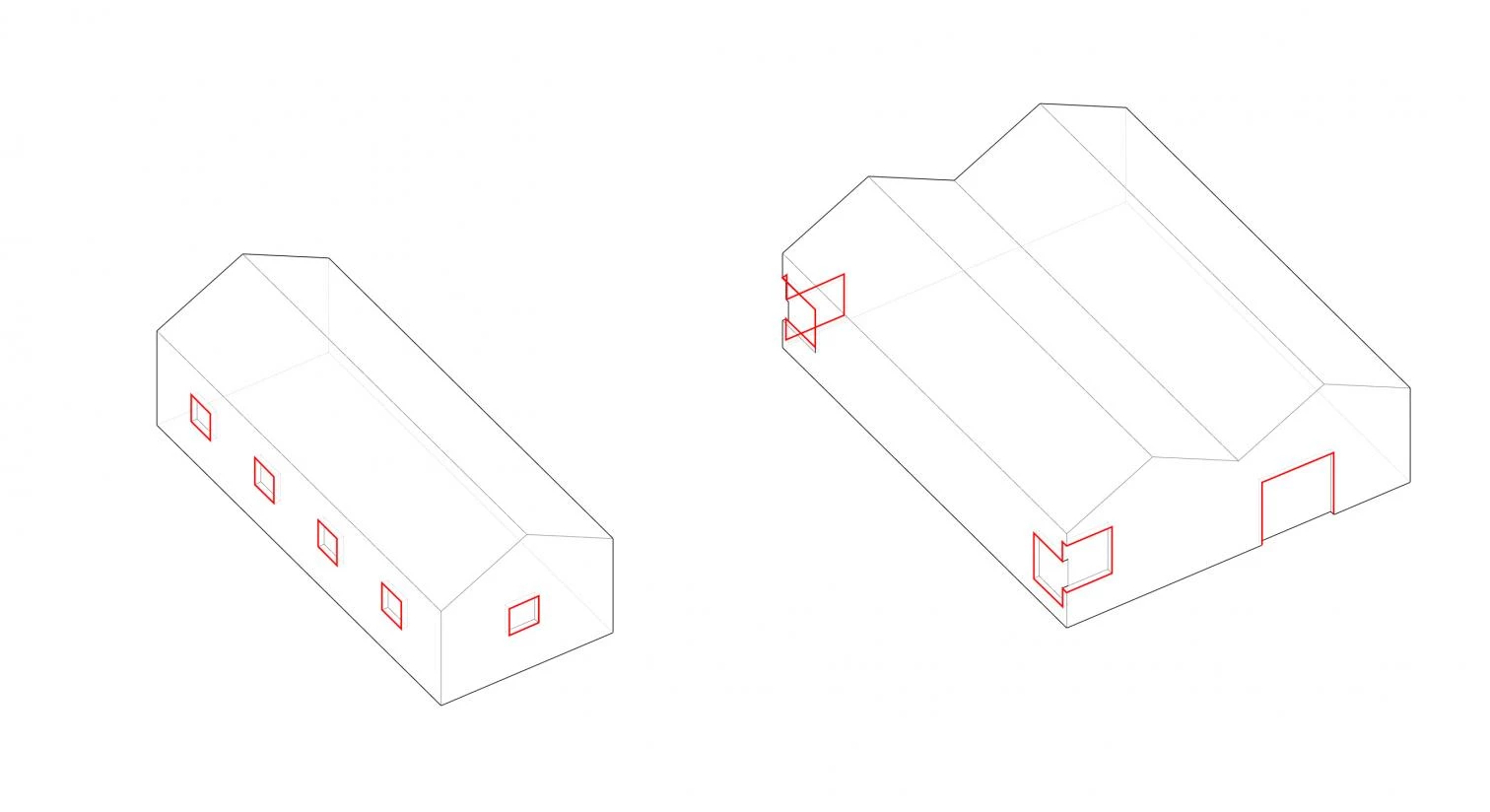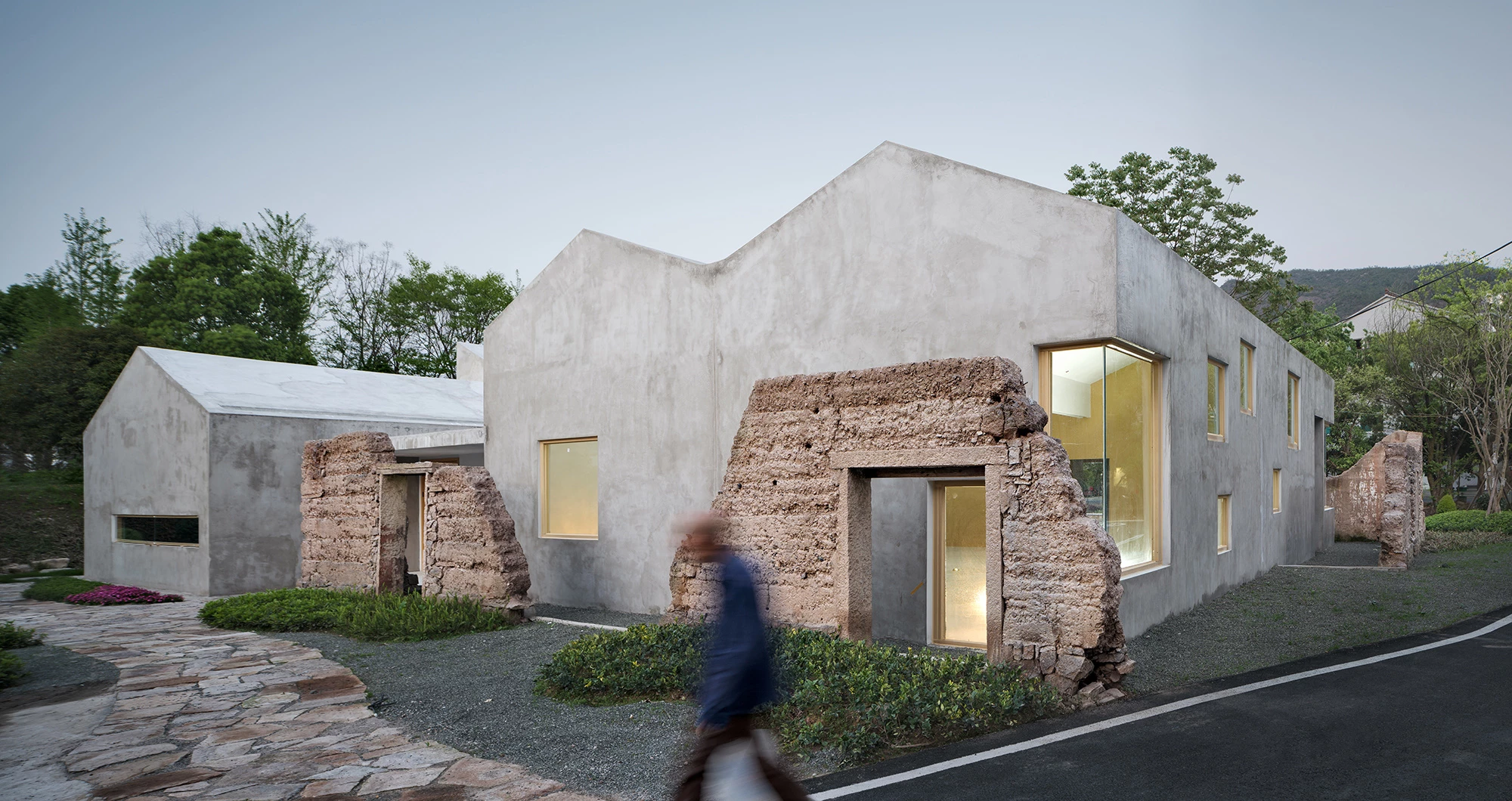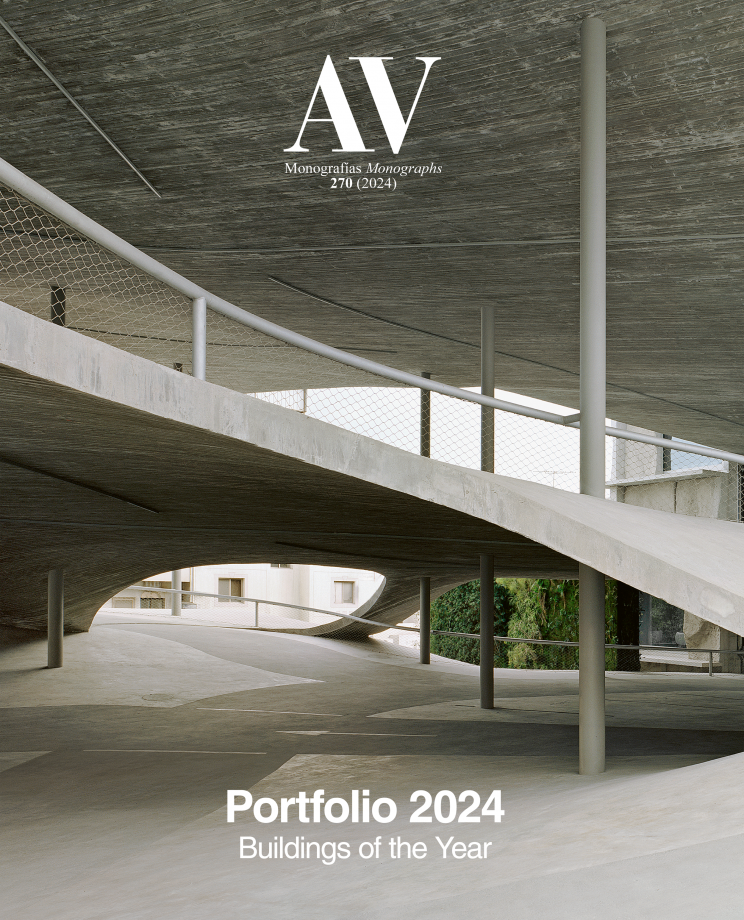Villagers’ Home in Wanghu
UAD Zhejiang- Type Refurbishment Culture / Leisure
- Date 2023
- City Taizhou (Zhejiang)
- Country China
- Photograph Zhao Qiang
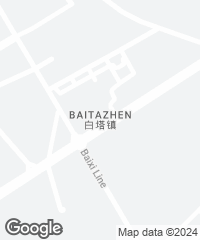
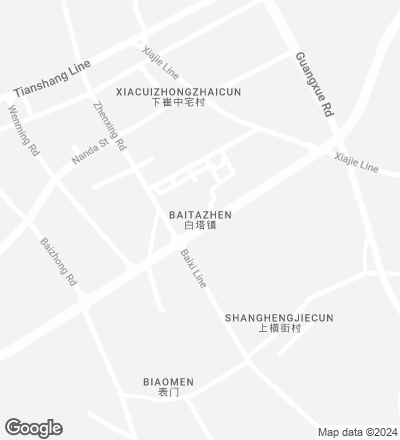
The Architectural Design & Research Institute of Zhejiang University (UAD) has built a series of public spaces for Wanghu Village, in the mountainous zone of Zhejiang Province in China. In the context of rural revitalization, the objective was to preserve local architectural features and address material and cultural needs of the inhabitants.
Previously the villagers grew mushrooms in three adobe buildings. The remains of these were incorporated into the new public spaces, with their traditional sloping roofs. Using modern technologies, historical fragments were integrated into new concrete structures. Respecting the historical context, the resulting complex includes a café and multipurpose spaces for different activities, including exhibitions on ancient techniques of mushroom cultivation.
In the reconstruction, large windows were created to address current lighting and ventilation requirements. They strike a contrast with the old fenestration, which was smaller because of the technical limitations of rammed-earth walling, but ensured the dim illumination needed for traditional mushroom breeding. In this way, the visual connections between the building and its surroundings were redefined.
